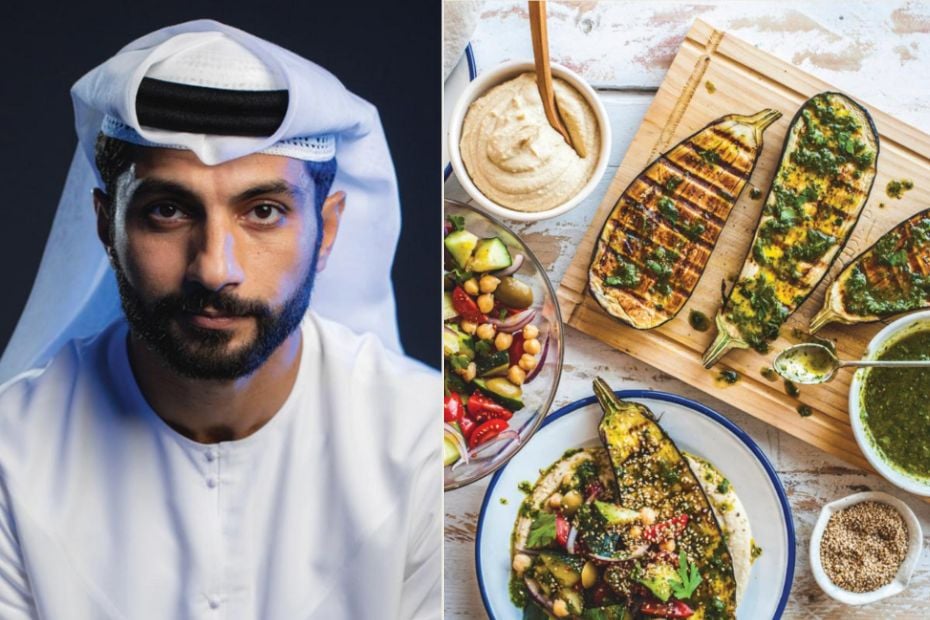|
JOHANNESBURG, South Africa, July 2, 2024/ — In the evolving landscape of global health, digital innovation emerges as a beacon of hope, pushing the boundaries of what is possible in healthcare access, quality, and affordability.
A recent white paper by the World Economic Forum, produced in collaboration with the Schwab Foundation for Social Entrepreneurship, EY, and Microsoft, sheds light on an exciting paradigm shift: the integration of Artificial Intelligence (AI) in social innovation, especially within healthcare.
AI uptake has the potential to improve immunisation programmes, supply chains, referrals, diagnoses, drug safety, and overall health system efficiency.
The report finds three primary impact areas where AI is making significant contributions:
Healthcare is by far the most prevalent impact domain that social innovators are addressing with AI. Corresponding to this, 1 in 4 Social innovators are deploying AI to advance Sustainable Development Goal 3, Good Health and Well-being. This is apparent across all geographies as innovators seek to adopt AI to address multiple challenges within the area of healthcare. Referenced in this report is BroadReach Group, a social impact organisation, that is using AI and machine learning to equip health care workers, leaders and institutions to better manage their scarce resources and drive better health outcomes for all. Vantage Health Technologies, a part of BroadReach Group is harnessing its work across continents in the following ways:
Dr. Ernest Darkoh, co-founder of BroadReach Group, says, “the fundamental issue in healthcare, whether you are in Sub-Saharan Africa, Western Europe, or the USA, is that demand outstrips supply in terms of health services, doctors, nurses, and medications. The healthcare sector is trying to deliver on an antiquated model of ‘sick care’ without real-time intelligence on disease patterns, who is being affected the most, or the adequacy of healthcare resources. We need to change this paradigm to be more effective by leveraging data and digital solutions to ensure we are always spending the next hour and the next dollar in the in the most impactful way possible.”
Global Collaboration to Achieve Health Equity The report also shows that Africa is emerging, with leaders like South Africa, Nigeria and Kenya. Egypt and Kenya have developed national AI strategies. In other countries like Cameroon, individual social innovators are using AI to address healthcare challenges, such as developing low-cost diagnostic tools for malaria. The continent is also seeing AI applications in economic empowerment and various ML capabilities. Paul Bhuhi, Managing Director of Vantage shares, ‘’AI is becoming more accepted, with healthcare leaders seeing the promise of AI to drive real improvement in health access, quality, and affordability. Yet, the education gap between innovators and the policy makers inhibits AI adoption, In our experience Rwanda and Kenya are leading that push but more needs to be done.” An important lesson that BroadReach Group is applying is that learning healthcare lessons in one country can have a profound global impact through collaboration. By sharing best practices, innovations, and research findings, countries can collectively address common health challenges more effectively. Collaborative efforts enable the adaptation of successful strategies to different contexts, promoting universal health improvements and accelerating progress towards global health goals like SDG 3. This exchange of knowledge fosters a more interconnected and resilient global healthcare community, where advancements in one region benefit all.
Dr. John Sargent, co-founder of BroadReach Group, says “an example of impact through collaboration is using our experience and learnings in Africa addressing health inequity and applying them to promote health equity in cancer care in the US. Our teams work across geographies and this collaboration has shown that we can more effectively and rapidly improve patient care because of this experience. Although every geography and market has its differences, many of the same core principles, critical lessons learned, and approaches apply, allowing us to rapidly adapt and implement solutions that have a real impact for populations in need while ensuring that the health system is using its resources in the most impactful way.”
Embracing the Ethical Adoption of AI The next generation of ethical generative artificial intelligence (GenAI) provides new hope for more equitable healthcare, but advances in technology must never come at the cost of patient rights. AI systems should start with guardrails and ethics within their foundational design. Chris LeGrand, CEO of BroadReach Group emphasises, “regulatory frameworks for ethical use of AI in healthcare are still early stage but are progressing. The new Digital Trade Protocol recently adopted by African heads of state under the Africa Continental Trade Area (AfCTA) is an example of international bodies defining the desired digital landscape with rules based on common principles, including protecting personal data while promoting trusted, safe, ethical use of emerging technologies. Regulation is slowly evolving to create trust and confidence in the protection of health data.” Distributed by APO Group on behalf of BroadReach Group.
|
Category: International
-

Africa- Leveraging Artificial Intelligence (AI) for Good Health: The New Frontier in Social Innovation to accelerate progress toward Sustainable Development Goal 3 (SDG 3)
-
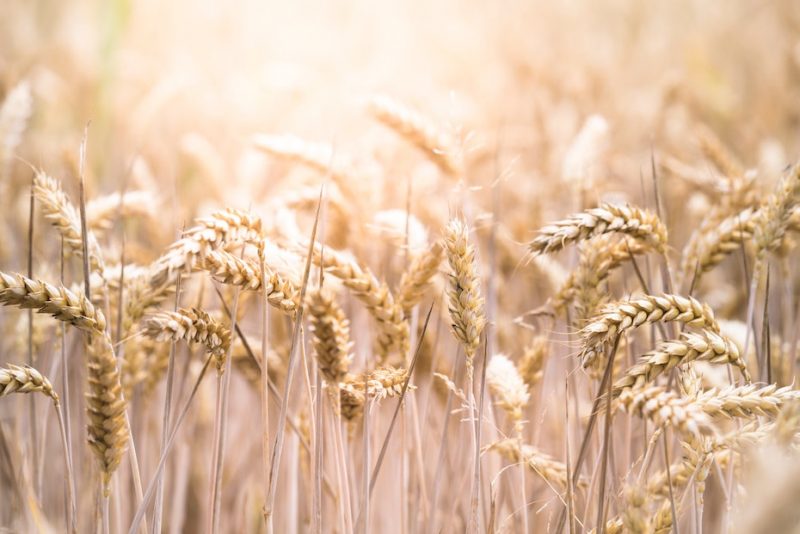
BRICS countries back grain exchange idea, Russia says
The BRICS group of countries have supported an initiative to set up a grain exchange, Russian Minister of Agriculture Oksana Lut said on Friday.
The exchange would allow buyers to purchase directly from producers and has been backed by Russian President Vladimir Putin ahead of a BRICS summit to be held in Russia in October.
“We will work together with our colleagues on creation and development of this platform and the development of the possibility of settlements in national currencies of the BRICS countries,” Lut said after a meeting of BRICS agriculture ministers held in Moscow.
BRICS nations’ food exports
The BRICS grouping, which includes Brazil, Russia, India, China and South Africa and new members – Egypt, UAE, Ethiopia and Iran, accounts for more than 30 per cent of global agricultural land, according to Russian export centre Agroexport.
It also accounts for more than 40 per cent of global cereal and meat production, nearly 40 per cent of dairy products and more than 50 per cent of total fish and seafood production.
“Last year, the association accounted for more than a third of Russia’s exports of agro-industrial products – that’s $15bn,” Lut said regarding BRICS countries.
SOURCE
GULF BUSINESS
-
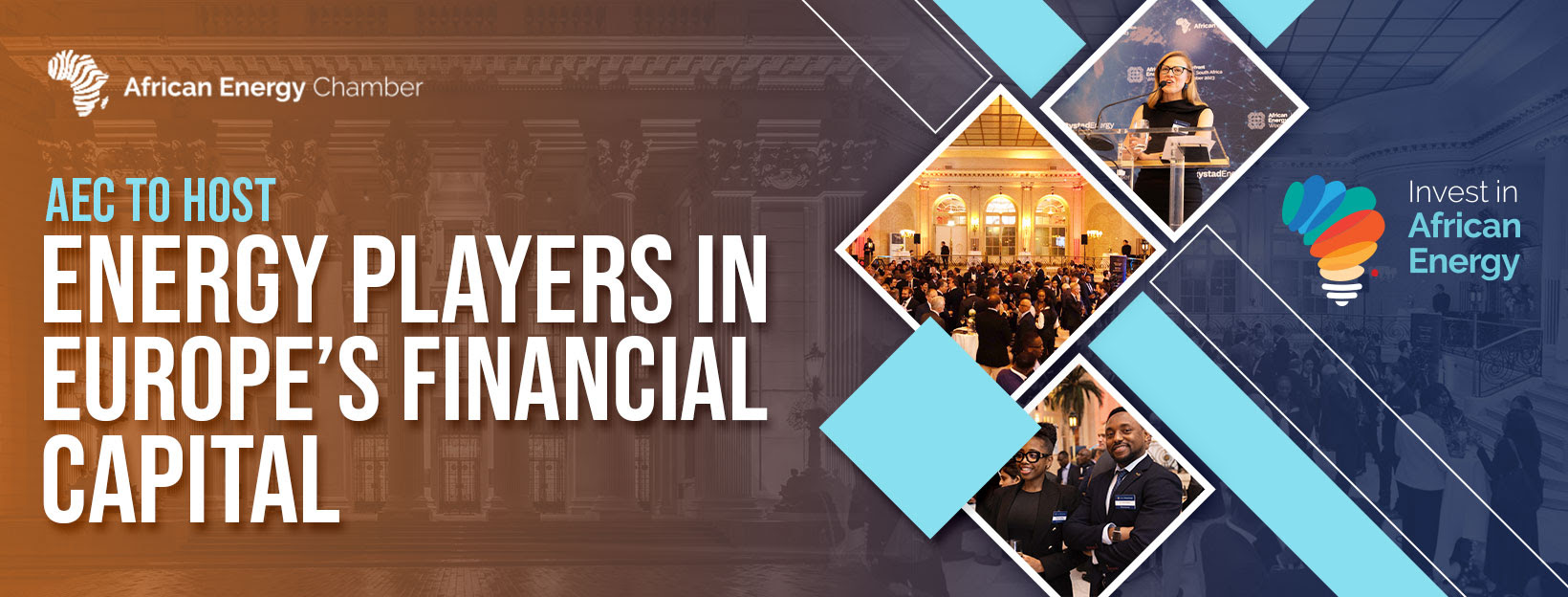
Bringing Finance to African Energy Projects: AEC to Host Energy Players in Europe’s Financial Capital
Global investment in upstream oil and gas is set to reach $570 billion in 2024, showing a 7% rise compared to 2023 expenditure. Of this, 33% is expected to be directed towards frontier fields, presenting a strategic opportunity for undeveloped oil and gas markets in Africa.
With lack of investment representing one of the biggest challenges to project development across the continent, the African Energy Chamber (AEC) will host a networking reception on July 11 in London – Europe’s financial capital.
Taking place at the Four Seasons Hotel London at Park Lane from 17:00 to 21:00, the reception bridges the gap between European financiers and African energy projects, promoting synergies, deals and future collaborations.
Despite holding some of the largest untapped oil and gas resources worldwide, Africa is faced with an energy crisis, with 600 million people currently living without access to electricity and 900 million people without access to clean cooking solutions.
The African Development Bank estimates that to address this crisis, the continent requires between $40 billion and $70 billion in annual investment.
Presently, Africa receives on average $35 billion in global financing for fossil fuels and clean energy projects, with merely 5% of global energy investment directed towards the continent.This showcases a clear investment gap and a strategic opportunity for European funders and project developers.
With over 125 billion barrels of proven crude oil, 620 trillion cubic feet of natural gas and abundant opportunities in solar, wind and geothermal, Africa continues to attract investment from some of the world’s biggest players.
The continent’s greenfield upstream spending, for example, is projected to reach $37 billion by 2025 and $50 billion by 2050, with companies eager to unlock the full potential of undeveloped oil and gas. Specifically, a strong slate of London-based oil and gas firms are driving a wave of project developments across the continent.
These include energy major bp, who is developing Senegal and Mauritania’s inaugural LNG project – the Greater Tortue Ahmeyim (GTA) facility – and Mozambique’s Coral Sul FLNG project. GTA is on track for first production in 2024 while bp delivered first gas from Coral Sul in 2022, marking the first LNG cargo for the country.
Additionally, energy major Shell is making strides towards opening up the Orange Basin in Namibia. The company’s Graff-1 discovery in 2022 was play-opening and Shell has made an additional five discoveries since then. The company is investing 25% of its deepwater exploration budget in the country this year.
Additionally, independent hydrocarbon producer Perenco inaugurated the $50 million Batanga LPG plant in 2023 and is developing the $1 billion Cap Lopez LNG terminal in Gabon.
The company is also investing in shallow-water and marginal assets across the continent, acquiring Eni’s core assets in the Republic of the Congo in June 2023 for $300 million.
Oil and gas company Tullow Oil anticipated commercial oil production in Kenya in 2028 while transitional energy company Chariot oil and gas recently signed a gas commercialization agreement with Vivo Energy in Morocco.
These developments – all led by London-based companies – represent just some of the many underway across the continent.
The AEC Reception builds on these deals to promote new investment in African energy. Taking place in London – both Europe’s financial capital and its biggest stock market – the reception is all about connecting companies to opportunities.
The total value of companies listed on the London Stock Market reached $2.18 trillion in June 2024, highlighting a commercial and strategic opportunity for the reception and African energy projects.
The AEC London Reception takes place ahead of the continent’s largest energy event, the African Energy Week (AEW): Invest in African Energy conference, scheduled for November 4-8 in Cape Town.
Under a mandate to make energy poverty history by 2030, the event unites global investors and technology providers with African energy projects, with discussions tailored around unlocking high returns and generating mutually beneficial opportunities.
Participants at the AEC’s London Reception have the chance to gain exclusive insight into AEW: Invest in African Energy 2024 while engaging with a suite of African stakeholders
This year’s AEW: Invest in African Energy will host the African Energy Finance Summit – a platform that galvanizes financial support for African energy projects, while promoting deal-signing and partnerships.
Hosted in partnership with multilateral financial institution the African Export-Import Bank and global market intelligence firm S&P Global Commodity Insights, the summit brings capital to Africa with the aim of making energy poverty history by 2030.
Don’t miss the chance to be at the forefront of Africa’s energy transformation. Register for the AEC’s London Reception at https://energychamber.org/london-roadshow/ or contact register@aecweek.com.
“We are proud to offer the State of African Energy Outlook for download.The report emphasizes the pivotal role of knowledge and foresight in navigating the complex and dynamic energy landscape and equips stakeholders with the insights they need to make informed decisions in the year ahead.
As we venture into 2024 we are oon the brink of making substantial strides in overcoming energy poverty throughout Africa and moving towards a more sustainable energy future”-NJ Ayuk,Executive Chairman of the AEC.
SOURCE
AFRICA ENERGY CHAMBERS
-
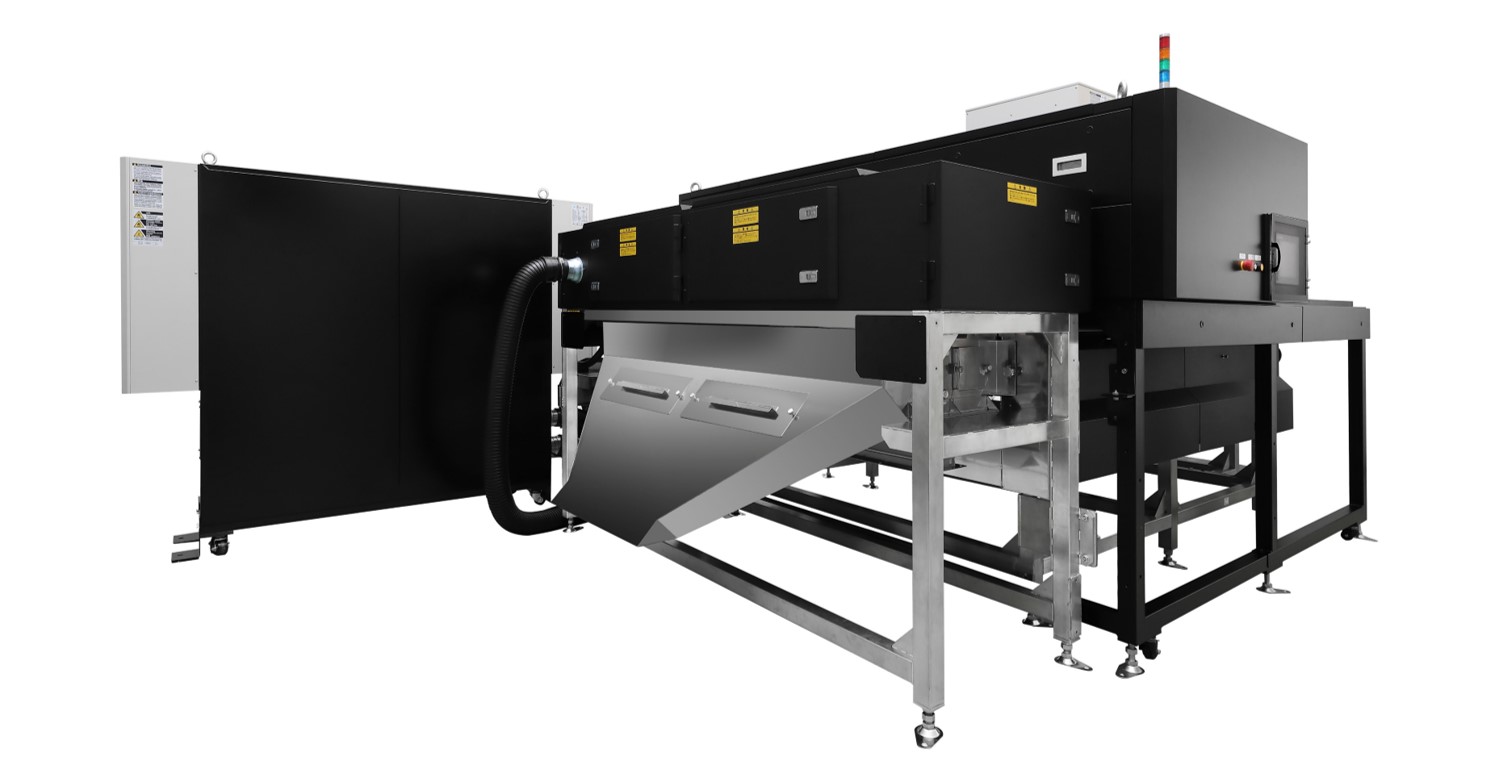
Canon enters recycling system business with innovative technology, promoting circular economy with high-speed, accurate plastic sorting equipment capable of measuring even black plastic waste
DUBAI, United Arab Emirates, June 26, 2024/ — Canon Inc. (https://en.Canon-CNA.com/) an
nounced today that it will launch new plastic sorting equipment with innovative material identification technology. The equipment applies Raman spectroscopy technology to moving objects with a tracking mechanism to collectively detect the material types of plastic fragments with high accuracy, even when black plastic pieces are mixed with other colors, which has been conventionally challenging.
Today, the company will begin widely accepting orders from the market for the “TR Series” which includes the “TR-S1510.”
Currently, roughly 20%[1] of plastic waste generated in our daily lives is recycled as material for new products (material recycling), while the remainder is used as fuel or incinerated.
Recycled plastics have to maintain a certain degree of purity, which is why materials made of plastic waste, such as ABS[2] and polypropylene (PP), must be accurately identified.
However, black plastics, often used in home electronics or automobile upholstery, do not transmit or reflect visible light, making it difficult to identify their materials using conventional near-infrared spectroscopy[3]. Additionally, in order to accelerate plastic recycling, higher accuracy and productivity are required for sorting operations.
The new product employs a proprietary tracking Raman spectroscopic method to rapidly sort all plastic pieces regardless of their colours, including black, with high precision, thereby helping to improve the productivity of recycling plants. With the launch of this product, Canon marks its entry into the recycling system market in an aim to build a circular economy by maximizing material recycling.
The new product’s high-precision, high-speed sorting of plastic including black pieces is thanks to its unique DUBAI, United Arab Emirates, June 26, 2024/ — Canon Inc. (https://en.Canon-CNA.com/) an
nounced today that it will launch new plastic sorting equipment with innovative material identification technology. The equipment applies Raman spectroscopy technology to moving objects with a tracking mechanism to collectively detect the material types of plastic fragments with high accuracy, even when black plastic pieces are mixed with other colors, which has been conventionally challenging. Today, the company will begin widely accepting orders from the market for the “TR Series” which includes the “TR-S1510.”
Currently, roughly 20%[1] of plastic waste generated in our daily lives is recycled as material for new products (material recycling), while the remainder is used as fuel or incinerated. Recycled plastics have to maintain a certain degree of purity, which is why materials made of plastic waste, such as ABS[2] and polypropylene (PP), must be accurately identified. However, black plastics, often used in home electronics or automobile upholstery, do not transmit or reflect visible light, making it difficult to identify their materials using conventional near-infrared spectroscopy[3]. Additionally, in order to accelerate plastic recycling, higher accuracy and productivity are required for sorting operations. The new product employs a proprietary tracking Raman spectroscopic method to rapidly sort all plastic pieces regardless of their colours, including black, with high precision, thereby helping to improve the productivity of recycling plants. With the launch of this product, Canon marks its entry into the recycling system market in an aim to build a circular economy by maximizing material recycling.
The new product’s high-precision, high-speed sorting of plastic including black pieces is thanks to its unique combination of Raman spectroscopy with a tracking mechanism. Raman spectroscopy is a detection method that utilizes laser light to illuminate plastic pieces to obtain molecular information of the substance, thereby enabling the material detection. This method is technically applicable to black plastic. However, due to the limited amount of reflection by the black plastic pieces, the measurement time is too long relative to the speed and throughput required to effectively sort all the pieces regardless of their colours at recycling plants. Therefore, the practical application of Raman spectroscopy to sorting black plastic has so far proven difficult. By combining Raman spectroscopy with Canon’s measurement and control equipment, the company has developed a tracking Raman spectroscopy technology which scans[4] laser light toward the pieces, thus ensuring there is enough measurement time required for each piece of plastic according to its colour and achieving high speed and high accuracy overall. With this new system, the materials of black plastic pieces which were challenging to identify using the conventional near-infrared method can now be identified in a practical manner even when mixed with other colours, thereby helping to improve the productivity of recycling plants and, as the result, maximizing material recycling.
This new product maintains a conveyor speed of 1.5 meters per second and can sort up to 1 ton of plastic per hour. It can even be customized according to a customer’s throughput and installation space by changing the module which tracks and measures the plastic pieces or the combination of conveyor belts.
[1] According to “Plastic Products, Plastic Waste and Resource Recovery” published by the Plastic Waste Management Institute[2] Acrylonitrile Butadiene Styrene. A type of plastic that is highly resistant to heat and impact.[3] A method of measurement in which an object is illuminated with near-infrared light. Based on such factors as reflection and penetration of light, the object’s light absorption is measured and the type of resin the object comprises can be determined[4] By continuously moving the position of the laser, the target object is continuously illuminated by the laser, allowing for light to be reflectedDistributed by APO Group on behalf of Canon Central and North Africa (CCNA).Media enquiries, please contact:
Canon Central and North Africa
Mai Youssef
e. Mai.youssef@canon-me.comRaman spectroscopy is a detection method that utilizes laser light to illuminate plastic pieces to obtain molecular information of the substance, thereby enabling the material detection.
This method is technically applicable to black plastic. However, due to the limited amount of reflection by the black plastic pieces, the measurement time is too long relative to the speed and throughput required to effectively sort all the pieces regardless of their colours at recycling plants.
Therefore, the practical application of Raman spectroscopy to sorting black plastic has so far proven difficult. By combining Raman spectroscopy with Canon’s measurement and control equipment, the company has developed a tracking Raman spectroscopy technology which scans[4] laser light toward the pieces, thus ensuring there is enough measurement time required for each piece of plastic according to its colour and achieving high speed and high accuracy overall.
With this new system, the materials of black plastic pieces which were challenging to identify using the conventional near-infrared method can now be identified in a practical manner even when mixed with other colours, thereby helping to improve the productivity of recycling plants and, as the result, maximizing material recycling.
This new product maintains a conveyor speed of 1.5 meters per second and can sort up to 1 ton of plastic per hour. It can even be customized according to a customer’s throughput and installation space by changing the module which tracks and measures the plastic pieces or the combination of conveyor belts.
[1] According to “Plastic Products, Plastic Waste and Resource Recovery” published by the Plastic Waste Management Institute
[2] Acrylonitrile Butadiene Styrene. A type of plastic that is highly resistant to heat and impact.[3] A method of measurement in which an object is illuminated with near-infrared light. Based on such factors as reflection and penetration of light, the object’s light absorption is measured and the type of resin the object comprises can be determined[4] By continuously moving the position of the laser, the target object is continuously illuminated by the laser, allowing for light to be reflectedDistributed by APO Group on behalf of Canon Central and North Africa (CCNA).Media enquiries, please contact:
Canon Central and North Africa
Mai Youssef
e. Mai.youssef@canon-me.com -
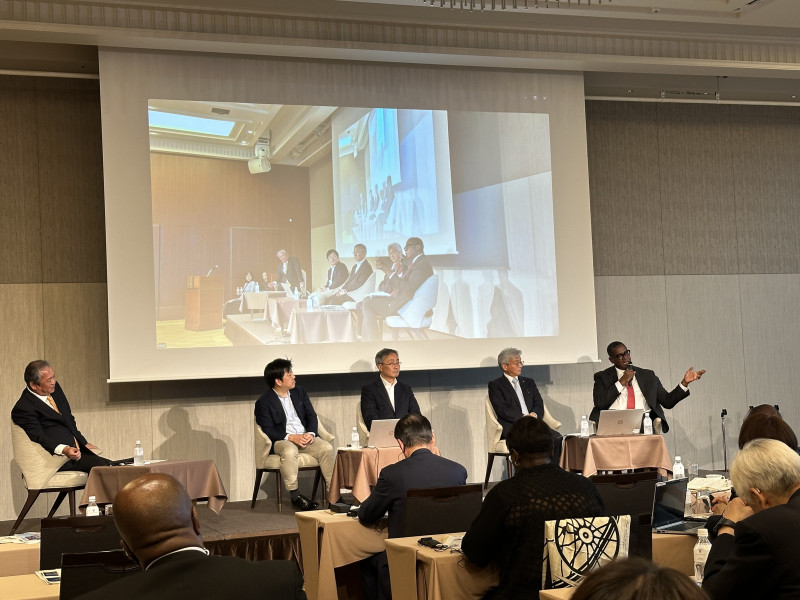
Africa Offers Attractive Investment Opportunities for Japanese Firms, Say African Development Bank Leaders
TOKYO, Japan, June 22, 2024/ — Africa presents a compelling investment destination for Japanese firms, with high growth potential and the African Development Bank’s strong support to manage risks, African Development Bank Group (www.AfDB.org) leaders stressed at the Japan-Africa Business Forum in Tokyo.
“Africa has huge private sector opportunities. The continent offers some of the highest returns globally,” said Prof. Kevin Chika Urama, Bank Group Chief Economist and Vice President, in a presentation highlighting Africa’s abundant renewable energy potential, and the need for strategic investments in green minerals and value addition.
“Smart investments in Africa are good business — doing well by doing good,” he stressed.
Dr. Kevin Kariuki, Vice President for Power, Energy, Climate and Green Growth, highlighted Japan’s competitive advantage in geothermal technology. “90% of all the turbines in Kenya are from Japan, starting with Mitsubishi,” he noted. Kariuki also positioned Africa as a solution to Europe’s energy challenges, with planned interconnections to export power and hydrogen.
The forum was organised by the African Development Bank and Keizai Doyukai, the Japanese Association of Corporate Executives, with support from Japan’s Ministry of Finance.
Bank leaders underscored the institution’s commitment to making investing in Africa more attractive. “We have facilities within the Bank to try and de-risk these projects,” said Kariuki, citing the Sustainable Energy Fund for Africa’s (SEFA) support for the Kom Ombo and Kairouan solar projects amid escalating costs.
Kazuko Nagura from Japan’s Ministry of Economy, Trade and Industry (METI) announced plans to hold the third Japan-Africa Public-Private Economic Forum later this year. The event will offer Japanese companies an opportunity to travel to Africa to undertake business development and networking.
Nagura also made reference to the ministry’s efforts to support Japanese business ventures in Africa such as the AfDX (https://apo-opa.co/
4eCjcP4) program and Expo 2025 Osaka, Kansai (https://apo-opa.co/ 4be8M58) planned for next year. During a panel discussion on investing in African startups, Vice President for Private Sector, Infrastructure and Industrialisation Solomon Quaynor stressed the potential of the Fourth Industrial Revolution (4IR) to drive productivity improvements and deliver services to the base of the pyramid.
“The idea is to use technology to increase profitability through efficiency, so you’re delivering value for which all segments of society are actually paying,” he explained.
Quaynor highlighted the Bank’s initiatives to develop Africa’s human capital and startup ecosystem, including partnerships with tech giants: “We have a program with Intel to train 9 million Africans in artificial intelligence and a coding for employment program to upskill up to 50 million youth.”
He said the Youth Entrepreneurship Investment Banks (YEIBs) (https://apo-opa.co/4cuUaPV) will further support tech-enabled companies and enhance the collaboration with &Capital, a new Africa-focused impact fund endorsed by Keizai Doyukai.
Misako Takahashi, Deputy Director-General of the Middle Eastern and African Affairs Bureau at Japan’s Ministry of Foreign Affairs, highlighted TICAD as a platform for co-creating innovative solutions for growth and to discuss Japan and Africa’s shared future.
Yacine Fal, the Special Representative of the African Development Bank’s President to the Africa Investment Forum (www.
AfricaInvestmentForum.com), showcased the platform’s role as a premier conduit for investment into Africa’s agriculture, energy, transport, healthcare and ICT sectors, among others. She noted the successful participation of Japanese investors and business leaders including those from Keizai Doyukai at the 2023 Market Days held last November in Marrakech.
Earlier in the day, Keizai Doyukai, and the African Development Bank reaffirmed their commitment to work together to strengthen business ties between Japan and African countries.
The two jointly organized the business forum to increase interest in African business and promote a better understanding of the Japanese private sector ahead of TICAD9.
Distributed by APO Group on behalf of African Development Bank Group (AfDB).More images: https://apo-opa.co/
3VyblJv Media Contact:
Olufemi Terry
African Development Bank Group
media@afdb.org -
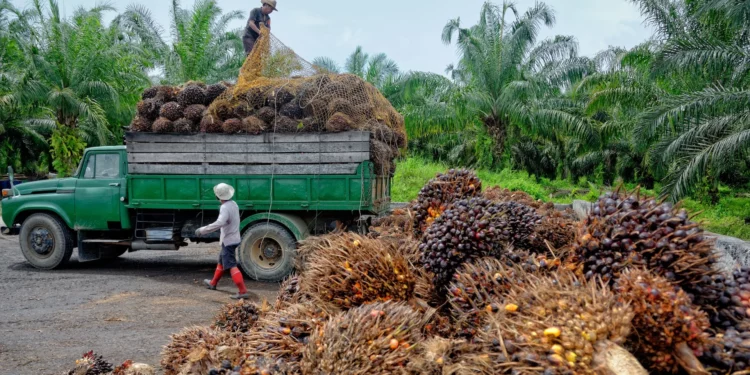
‘Nigeria spends $600m annually on palm oil importation’
The National Palm Produce Association of Nigeria (NPPAN) has revealed that Nigeria spends $600 million annually on palm oil oil importation.
This was stated by Mr Alphonsus Inyang, the National President of the association, in an interview with the News Agency of Nigeria (NAN) on Tuesday in Abuja.
Inyang criticised these expenses as detrimental to national development, suggesting that the funds could be better utilised within the economy if the palm oil oil sub-sector received adequate attention from successive governments
He highlighted Nigeria’s historical self-sufficiency in palm oil production, contrasting it with the current situation where a substantial portion of the country’s palm oil is imported.
“In the 60s, Nigeria was the leading global producer and exporter of palm oil oil, controlling over 60 per cent of the world’s supply,” Inyang said.
“Now, more than 50 per cent of our consumption is met through imports.” Currently, Nigeria ranks fifth among palm oil-producing countries, trailing Indonesia, Malaysia, Thailand, and Colombia.
Inyang warned that Nigeria might lose this position to smaller countries investing heavily in the sector.
According to the U.S. Department of Agriculture, Nigeria produces 1.4 million metric tons of palm oil oil annually, accounting for 1.5 per cent of the world’s total output.
This production level is significantly lower than the leading producers: Indonesia at 50 million metric tons, Malaysia at 19 million metric tons, Thailand at 3.28 million metric tons, and Colombia at 1.9 million metric tons.
SOURCE
WEEKLY AGRICULTURE DIGITS,NIGERIA
-
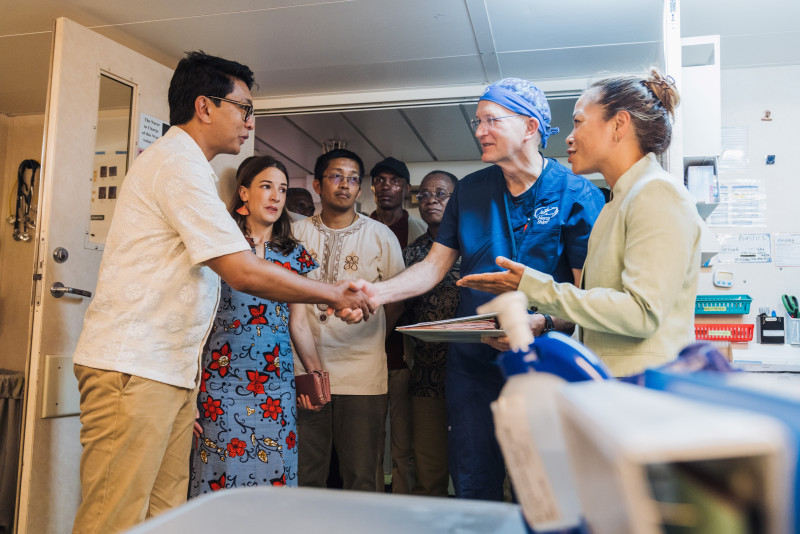
Mercy Ships Welcomes Presidential Visit on board, in Toamasina Harbor
TOAMASINA, Madagascar, June 20, 2024/ — Malagasy president His Excellency Andry Nirina Rajoelina visited patients and volunteers on board Mercy Ships’ hospital vessel (www.MercyShips.org) to see for himself the lives being transformed.
On Saturday June 15, the president along with Minister of Health Professor Randriamanantany Zely Arivelo, accompanied by a delegation with His Excellency, visited the Africa Mercy ® hospital ship in Toamasina. This marked the first time the Malagasy president has visited the ship during its current mission.
Nathan Jansen, Managing Director of the Africa Mercy, said: “We were honored to welcome His Excellency aboard the Africa Mercy. We were encouraged both by his desire to bring health to all of the people of Madagascar, and for his expression of partnership with Mercy Ships. We consider it a privilege to serve as partners with the Ministry of Health to bring direct medical services and education training and advocacy to the health system.”
During the hospital tour, His Excellency had the opportunity to speak with several patients in the ward. He said: “We hope Mercy Ships can serve in Madagascar as long as possible”, to which everyone including the President’s delegation, the crew, and the patients in the ward, broke out in loud applause.
The president also explored various departments of the hospital, including the operating room and the CT-scanner. His Excellency remarked: “It is already impressive to have a hospital ship like this, utilizing advanced technologies.”
While walking through the ship’s corridors, the President took time to chat with some crew members. He showed particular interest in the onboard community, which currently consists of 336 individuals. On the bridge, he received a briefing from the captain and enjoyed a stunning view of Toamasina’s coastline.
At the end of his visit, His Excellency affirmed that Mercy Ships supports the Malagasy government’s effort in healthcare.
The President stated: “Healthcare must be closer to the people. This is why we have built multiple hospitals. From 1990 to 2019, Madagascar had only 18 referral hospitals. Since the beginning of my mandate in 2019, we have constructed 30 additional hospitals nationwide.
“We now need partners to help those in difficulty. There are operations that Malagasy specialists cannot yet perform, especially for the most vulnerable. The actions and operations that Mercy Ships is undertaking in Madagascar are commendable, and we should continue in this direction to help our neighbors, particularly those in difficulty and suffering from illnesses.”
Distributed by APO Group on behalf of Mercy Ships. -
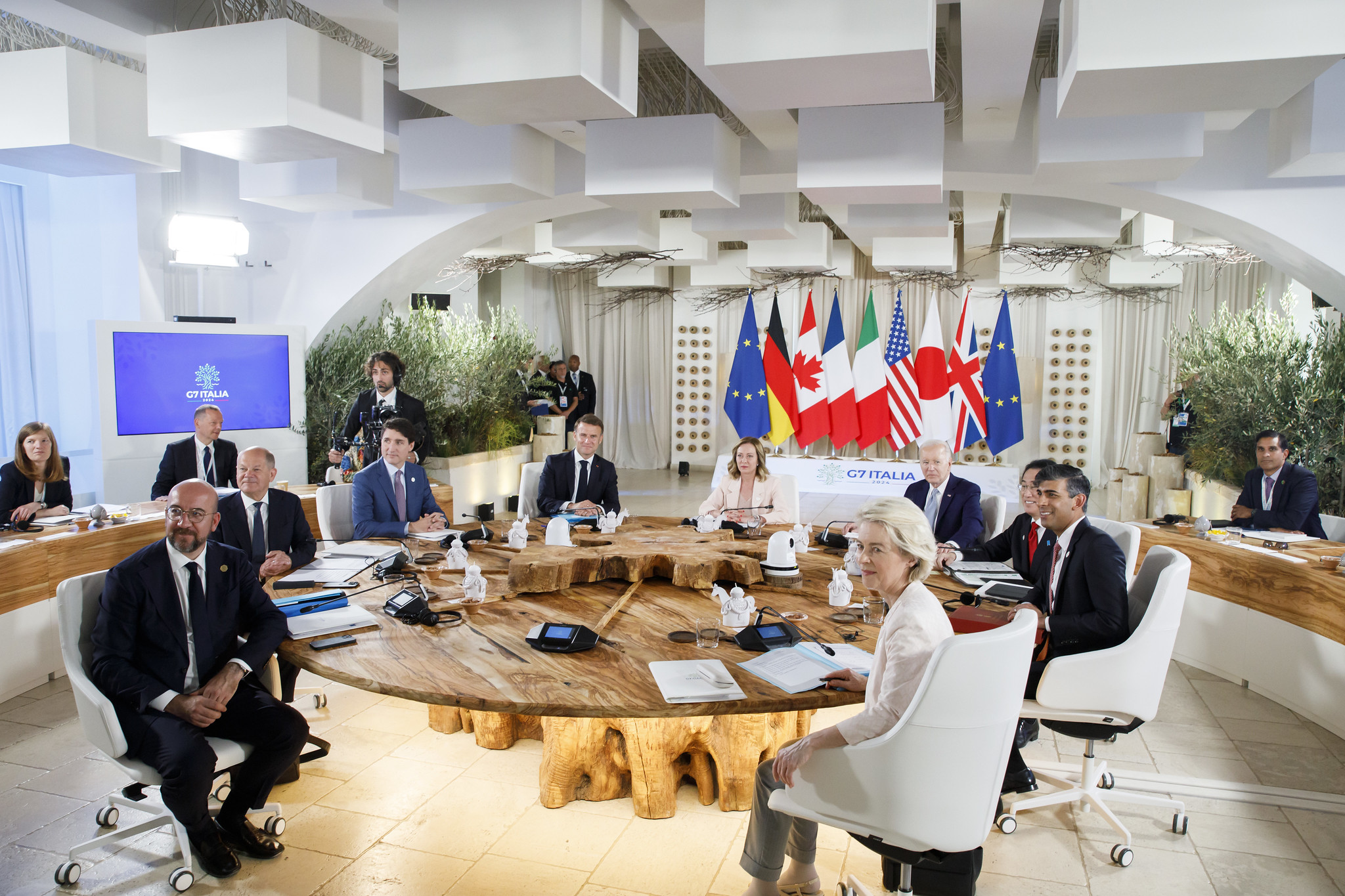
Energy for Growth in Africa Initiative Unveiled
By.Mohammed A.Abu
The decades long delay in fulfilment of pledges made by the Global South towards climate change impact funding in the Global North hasn’t helped the course of the global transition from fossil fuels derived energy to renewable energy as global warming and climate change impact bites deeper.
Indeed, lack of external affordable funding for renewable energy projects in both the public and private sectors of countries in the Global South with particular reference to Africa, the world’s most energy poor continent, has since given rise to the legitimate issue of energy transition justice.
The energy for growth in Africa Initiative that was unveiled on the sidelines of the recently held G7 Leaders Summit could be a game changer if implemented to the full.
For the details regarding the initiative, read on
“We the representatives of Canada, the Republic of Congo, Côte d’Ivoire, Ethiopia, France, Germany, Italy, Japan, Kenya, Mozambique, Nigeria, South Africa, the United Kingdom, the United States of America, and the European Union, recognize that universal access to affordable clean energy is a key factor for sustainable, resilient and inclusive economic growth and social development, as proclaimed by the 2030 Agenda for Sustainable Development and the African Union’s Agenda 2063.
“It also contributes to meeting the climate goals of the Paris Agreement and to keeping a temperature limit of 1.5C within reach. Africa’s significant but largely untapped clean energy potential needs massive investments.
“We will work to accelerate investments in clean energy sources to ensure an inclusive transition which supports energy security, recognizing that a substantial proportion of people in Africa still lack reliable access to electricity and clean cooking.
“To meet these objectives and the global efforts decided upon at the 5th session of the Conference of the Parties serving as the Meeting of the Parties to the Paris Agreement (CMA5), we look forward to the launch of the G7’s ‘Energy for Growth in Africa’ initiative and to contributing to its success.
“The initiative will help develop bankable clean energy projects, attract private capital through the catalytic use of public finance and technical assistance, encourage the flow of concessional finance, and overcome barriers to investments in clean energy across Africa.
“The initiative will engage with governments, the private sector, financial institutions, multilateral development banks, and community groups. It will partner with the United Nations Development Program and the International Energy Agency.
“It will also coordinate with existing programmes, to ensure complementarity and avoid duplications, and will operate in close coordination with the G7 Partnership for Global Infrastructure and Investment”,the joint statement concluded.
SOURCE
SDG KNOWLEDGE HUB

